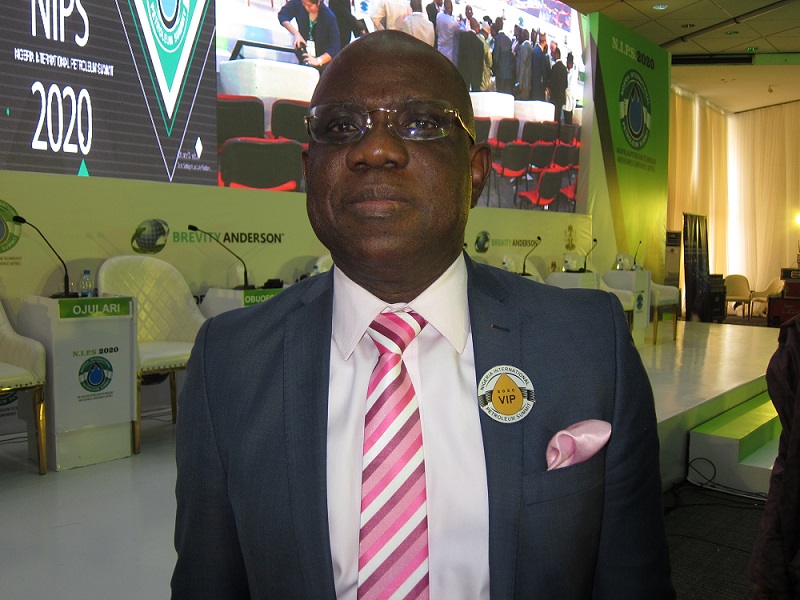Mr. Bayo Ojulari, Managing Director, SNEPCo
…Business continuity requires cost efficiency for Survival
…Gas will unlock the industry
…Non passage of PIB resulted to low investments in the sector
-By Victoria Opeyemi
Shell Nigeria Exploration and Production Company (SNEPCo) is one the International Oil Companies (IOCs) operating in Nigeria with focus to building capacity in the country. The company has a major project known as Bonga Floating Production Storage Offloading (FPSO).
Speaking recently from an international investor perspective at a panel session organized by the World Energy Council,was Mr. Bayo Ojulari, Managing Director of SNEPCo He said “Covid-19 pandemic has brought some changes in the oil industry.”
Ojulari exclaimed, “as an international investor, the first thing to think about is where you are coming from. Where are you? And then where are you going?”
He said, at the first phase of the pandemic, people thought it will be sorted out with technology and in a short time it will be over while energy transition will robust. But unfortunately, within the last couple of months projections made were wrong. The unseen adversary becomes a reality that caught the world unawares hence people have to live with it.
The SNEPCo MD asserted that despite the challenges, operators of the industry will handle the situation and definitely find a way out for survival. The oil industry is proactive and futuristic in planning, the stakes are high since world economy relies significantly on the industry for energy it provides.
Ojulari projected three things international oil company focuses on in this current situation these are; care, business continuity and cash.
In his words, he said “The pandemic is about people, staff, the community, friends and families, what I have learnt and what most of us have learnt round the globe. We need to focus our energy on the care for the society.” Donations and contributions are good but there is need to monitor societies and how the pandemic affects their livelihood.
He was perturbed that as testing capacity increases in Nigeria, the numbers are still increasing. The pandemic has made companies to shut down production facilities and rigs. Therefore, the safety of people and the society are paramount.
The second aspect is business continuity with respect to low cost, how does company defer none critical projects to remain positive and sustain cash flow in the current year? It will be difficult for business to continue if cash flow is lower. What is required for the industry at present is collaboration with policy incentives to enable different investment drive. Business continuity requires cost efficient for survival in the short term.
The SNEPCo helmsman opined that since Covid-19 may not subside sooner as expected, there should be downsizing of some projects, right sizing them, focusing on where they are economic viable because the oil price for which economics were done are not the same. For transparency in the industry, there should be open books economics to share proceeds.
Gas is a transition fuel; the industry needs it to move to the next level. Ojulari said gas has provided alternative to cleaner energy and the future is with gas. It is the option for Nigeria to develop the economy.
The key fundamental for gas is end to end which is from the producer to the consumer. The challenge in Nigeria is to develop gas and stakeholders should harmonise right prices. The domestic space is friendly with gas due to willing buyer, willing seller. What the sector needs is an accelerated regulation because for the last 25 years attempt to force prices on gas has stifled investment.
Development is a key factor to natural gas resources while incentives of government should be directed towards consumers. This will unlock the industry.
One cogent area that SNEPCo is known for is human capital development. The company has a scholarship and internship programme for young Nigerians. Ojulari disclosed that the internship has been sustained and enhanced. There is a transparent process to get these young Nigerians who are involved with future development plans. They are deployed to a department where they will further be trained to work together.
The internship is gotten from every aspect ranging from commercial engineering to finance. This new generation excelled in information technology and artificial intelligence. Amazingly, they have appetite for big data and technology.
The Petroleum Industry Bill (PIB) has been a concern for Nigeria’s oil industry especially the IOCs owing to investment mechanism. The bill has not yet seen legislative light nor being approved by Nigeria’s executive.
Although, in spite of its failure to scale through different processes and arrive at logical conclusion, experts are not comfortable. Ojulari opined that the industry is not static with executive intervention in place but it is strenuous “taking a lot of resources.”
He decried that the protracted bill has taken a “lot of sweat from every body and because of the slowness, the country missed opportunities.” The growth in the industry could have been faster with investments opportunities if the bill had been passed. The country does not have the financial might to invest alone without external investors.
Thus, expectation from IOCs is that despite challenges, there should be continuous improvement with a bill to govern the industry. It has brought negative reputation to the country.
“A country that is seen as not been able to execute a regulation that it has been working on. The perception is not good enough for the benefit and reputation of Nigeria, Ojulari exclaimed.”
The PIB cannot be perfect hence it has to be passed while the gaps should be worked on. The IOCs are disturbed that Nigeria has not been able to pass a law that is very critical to its primary industry. The loss of time is not helpful to the country.


Comment here